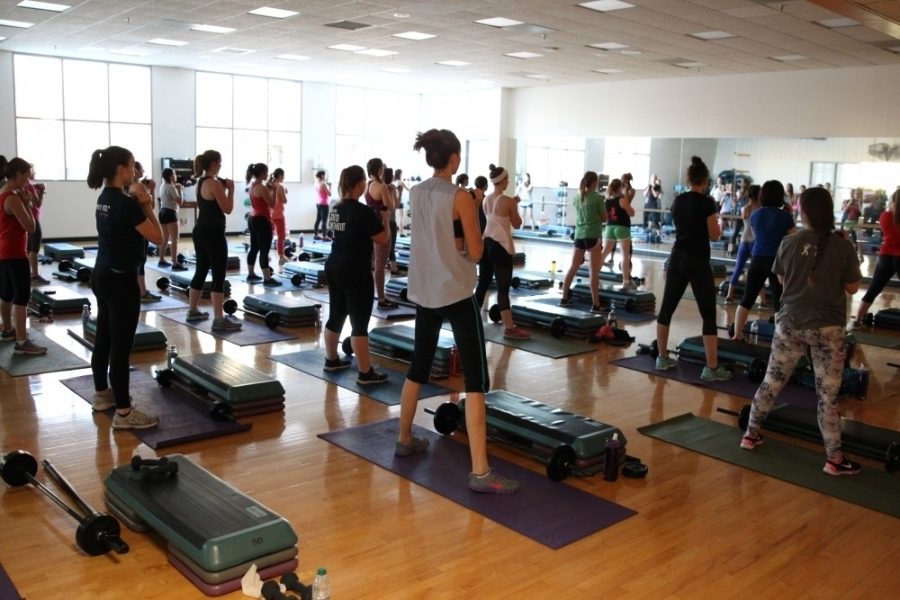A new environment, new community, new struggles, new passions, new relationships, new pressures, new emotions, new sleep schedules — new everything, yet it is still important to take time to consider mental and physical health? The answer is yes, especially for college freshmen.
According to Higher Education Today, there has been a decline in mental and physical health in college freshmen since 1985, indicated by the Cooperative Institutional Research Program’s freshman survey. Whether somebody comes into college with existing mental or physical health conditions or they are completely healthy with no worries in the world, ignoring wellness can detract from positive academic, social and personal growth in college.
According to Lee Ann Hamilton, the assistant director for the University of Arizona Campus Health Service’s Health Promotion and Preventive Services, three major steps freshmen can take to preserve mental and physical health are pushing oneself to connect with others, getting enough sleep and giving attention to healthy eating.
“It’s so critical to connect with people outside of the classroom,” Hamilton said.
Having people that can get you out of bed in the morning when the weekend comes around, people that can help integrate you into the college experience and people to share stresses with, can be extremely helpful. An American Journal of Lifestyle Medicine publication described how research has shown vast health benefits to social connection, from lowering depression and post-traumatic stress symptoms to even assisting with cancer survival. Sometimes, though, this requires people to push a bit outside of their comfort zones.
“Nobody learns anything staying in their comfort zone,” Hamilton explained. “You don’t meet new people if you just stay in your comfort zone.”
Sleep is another aspect that Hamilton advises freshmen to pay attention to. In college, it can be difficult sometimes to ensure full nights of sleep are achieved with loads of schoolwork and sometimes an abundant social life. Holding yourself accountable in this regard can be quite beneficial for strengthening the immune system, managing stress and preserving mental health.
“If you don’t get enough sleep, you don’t handle stress as well. You’re more likely to get ill, it’s hard on your immune system, but the good things about sleep are it helps you concentrate. It helps your mood, it helps your memory and it boosts your immune system,” Hamilton explained. “It’s really one of the cheapest things you can do to improve your health.”
Hamilton suggested lastly that students “eat real food.” She explained that the closer a food is to its original form, the better. For example, eating a baked potato rather than french fries or eating an apple rather than apple chips.
Despite the plethora of unhealthy options on the UA campus, Hamilton explained that it sometimes all comes down to just making the right choices. She described that students could, for example, order the non-fried beef and broccoli at Panda Express rather than the orange chicken, or go upstairs at the Student Union Memorial Center to Cactus Grill.
“There’s salad bars, there’s soups, there’s things that your mom would cook,” Hamilton said.
Of course, health and wellness during the first year of college go much deeper than the “freshman 15.” The American Psychological Association said that in eight countries, including the United States, one-third of college freshmen report a mental health disorder.
“Freshman year is a time of transition, and so it’s important to take care of yourself physically as well as mentally, emotionally and spiritually,” said Melissa Keller, a mental health clinician for UA’s Counseling & Psych Services and the program coordinator for Mindful Ambassadors.
Some tips that Keller has for students to maintain their mental health during this transition are getting enough sleep, taking care of physical health, including ensuring that you eat, drink enough water, limiting drugs and alcohol, maintaining social connection and doing things that bring “joy, happiness and curiosity.”
Additionally, she suggests any sort of mindfulness practice.
“They help us just get a little bit of space between our thoughts and feelings so that we’re able to observe them and let them happen without being overwhelmed,” Keller said.
Movement is another key factor that Keller highlights. During times of COVID-19, this may be more difficult because of less access to gyms and safe spaces for physical activity, but going on walks or even household workouts can be just as effective.
RELATED: COVID-19 patients no longer need tests to end isolation, CDC says
During the COVID-19 pandemic and political and civil unrest, Keller said she believes that people also should take time away from social media every now and again.
“We want to stay connected, we want to stay involved, but also it’s okay sometimes to just step back for a moment,” Keller explained. “It’s pretty intense for our nervous systems to have that much information coming in all of the time.”
The main resource for students struggling with mental health at the UA is Counseling & Psych Services. Right now, CAPS is providing the chance for students to get involved in support groups, such as a daily drop-in meditation group, a support group for students affected by COVID-19 and a support group for students of color.
In regards to overall health, UA Campus Health is the major health resource for UA students. UA Campus Health is in the top 3% of best college health services, according to the Princeton Review, and provides services from checkups and appointments to nutritional health services, physical therapy and LGBTQ+ health services.
Besides Campus Health, students can search for fitness and wellness resources through the Student Recreation Center, download the Stressbusters app for digital health promotion, utilize the UA Campus Pantry, a resource looking to prevent food insecurity on campus, or even join one of the many clubs that promote health and wellness. These are just some of the many resources created to foster a healthy environment on campus for students.
Follow Quinn McVeigh on Twitter









